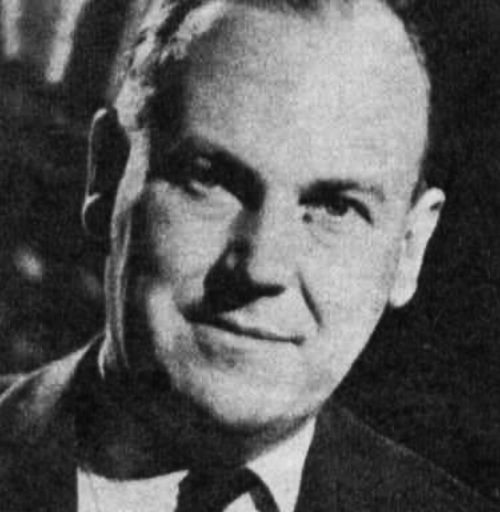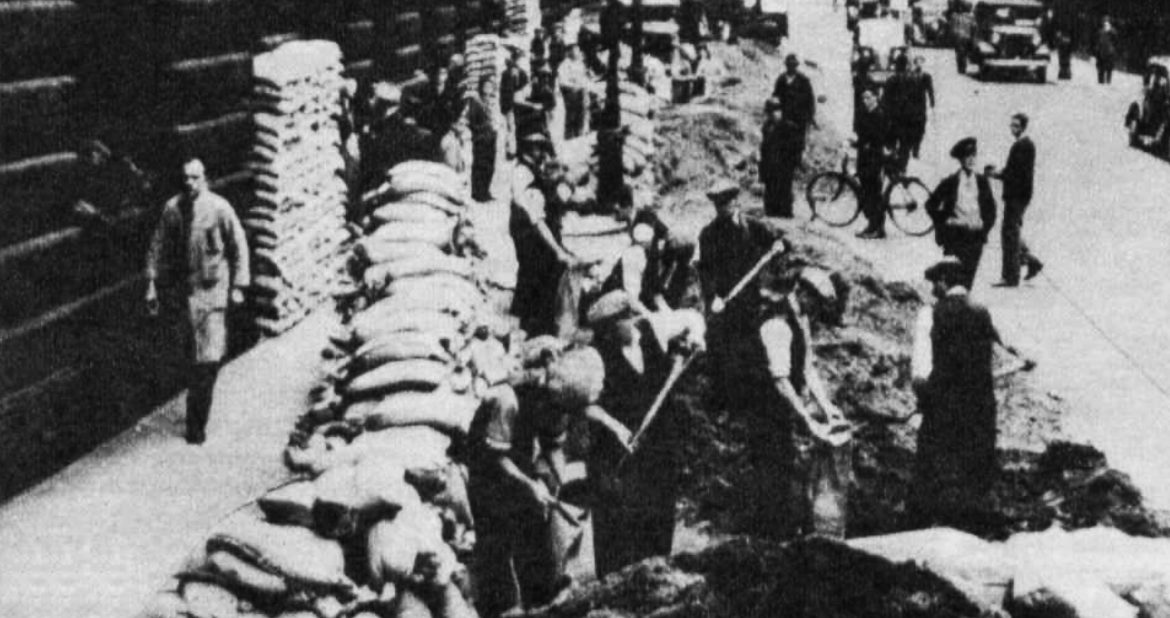Catching up with the past
Brian Inglis looks back at 4 years of All Our Yesterdays


IT was on December 12, 1960, that All Our Yesterdays was first presented. I came to it a year later when James Cameron, who had launched it, decided to go back to his old addiction—the life of a roving foreign correspondent.
I would get letters (as doubtless he did) pointing out how much better it would be for all concerned if he could be induced to return to the programme, while I went to Jericho.
But then, the Abdication came up. By the time we had got through that nostalgic period, the producer Jeremy Isaacs, now running This Week, in which he has since been joined by James Cameron, the director, Peter Plummer, and myself felt so much a part of the 1930s, we sometimes had difficulty in remembering that we were living 25 years on.

I still often find myself, particularly after writing the script, thinking that it is 1939 now, and feeling the same irritation with Kingsley Wood (or whoever it may be) and the same delight at some tune of the time, “Music Maestro’’ or “Indian Summer”.
Incidentally, we’re going to devote the December 28 programme to the music of the period, with the Derek Hilton Trio and singers Pat O’Hare and Chris Langford — on the lines of the August Bank Holiday show.
The other night it was suggested on another TV programme that All Our Yesterdays might skip a few weeks, from time to time, when nothing much was doing, in order to concentrate on the big events. We might compress the phoney war period, for example, to move on to the blitzkrieg and Dunkirk.
It’s a tempting idea, but in fact we have found that much of the pull of these old newsreels lies not in what they show of great events, but in the ordinary occasions — a football match with a glimpse of Stanley Matthews, a parade with King George VI making some wry aside to Queen Elizabeth. We saw that in the cinema! We remember, or we read about it. Just occasionally, we were there.
The war is a great stirrer-up of these memories. Most of us would be hard put to recall what we were doing in, say, June, 1939. But nearly everybody over 30 remembers vividly where they were and what they were doing three months later. And there is more chance of seeing yourself, or people you remember on wartime newsreels because they showed so much more of ordinary folk at their jobs — in the Forces, in A.R.P., in industry.
If only there were some way to give notice that you were going to see yourselves, or members of your family! We are constantly getting letters saying that there, third from the left in the front rank of a squad of A.T.S. was Aunt Mabel — but she happened to be out of the room at that moment, letting in the cat.
“My phone hasn’t stopped ringing and people stop me in the street,” Sam Costa wrote to us the other day when we had shown him at the piano. “The one person who didn’t see the programme was me.”
But of those who have seen themselves on the programme, and written to us about it, the viewer whose comments gave us most pleasure was Lord Avon.
For some of us, in the years immediately before the war, Anthony Eden represented the true voice of his country — even more than Churchill.
I even noted with regret in my diary — normally used only to record “dates” and other trivia — that Eden had resigned from the Cabinet in February, 1938; “Chamberlain blackmailed by Musso” was my diagnosis, which was not so far out. That Lord Avon should be appreciative of the programme’s handling of that black year was praise indeed.





